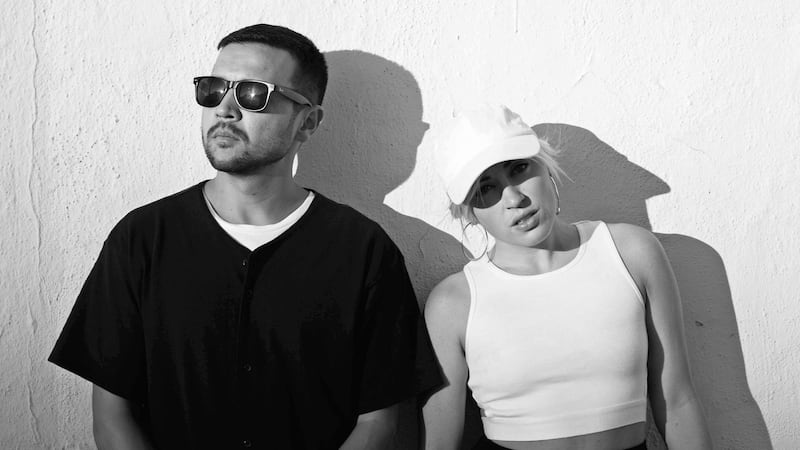Who: Reva DeVito (vocals), B. Bravo (keyboards, production).
Sounds Like: Equal parts sex jam and disco dance party.
For Fans Of: Fresh Selects, Kaytranada, funky bass.
"I'm sorry, darlin'," singer Reva DeVito says during our phone conversation. "I hate to interrupt you, but what was that you just said?"
She alternates "darlin'" with "baby girl," her speech aligning with the distinct warm fuzziness in her voices she's known for imparting on audiences. DeVito is something of a Portland hometown hero, singing soul-influenced dance music here since she was a teenager, and her newest project—warmly and fuzzily enough—is a collaboration with a childhood friend, the now Los Angeles-based producer B. Bravo. The way DeVito describes it, Umii formed completely spontaneously.
"We love working together, and we ended up with so many tracks that we were like, 'Let's just go for it,'" she says.
At each of its many stylistic turns, the musical arc of Umii's debut EP, This Time, speaks to that spirit of loose whimsy, oscillating with surprising smoothness between electro-pop, R&B, disco and chillwave—so many genres that using genre terms to describe it seems obtuse.
"Obviously, there's a soulful backbone there," DeVito says. "We grew up listening to Michael Jackson and Whitney Houston and Mariah Carey. But music is just extraordinary, because you don't have to say, 'This is what I do.' You can just experiment and create."
This Time also marks DeVito's first release with Portland-based label Fresh Selects, and it's right at home on founder Kenny Fresh's curated lineup. The electric keys of "Make Your Move" draws parallels to Charlotte Dos Santos' excellent new LP, Cleo, and the elegant funk sheen of "Dangerous" recalls Kadhja Bonet's The Visitor.
Strangely enough, though, for a singer who has worked with such production powerhouses as Kaytranada and Com Truise, DeVito places emphasis not on the hype or production value of the music, but on the feeling of it.
Take the name, for one. DeVito's partner B. Bravo, who's Japanese-American, suggested Umii for two translations—"sea" in Japanese and "mother" in Arabic.
"A lot of the music that we make is very watery, very liquidy," DeVito says. The other half, to her, represents a spirit of constant creation and purpose. Choosing a name that spoke to Bravo's background, and the inherent multiculturalism of "American" music, was important to the band, too.
"In America," DeVito says, "all the cultures come together to influence each other. It's the same thing with music, and I think that's a really beautiful thing."
For her, the practice of music-making is, in many ways, a practice of celebrating, defining and redefining American music traditions.
"I think it's important to remember and honor that American music comes from black music," DeVito says. "I feel very privileged to be able to create music because of those original sounds."
And there they are again—those warm and fuzzies.
SEE IT: Umii plays Holocene, 1001 SE Morrison St., with Hosannas and Brown Calculus, on Thursday, August 17. 8 pm. $8 advance, $10 day of show. 21+.
